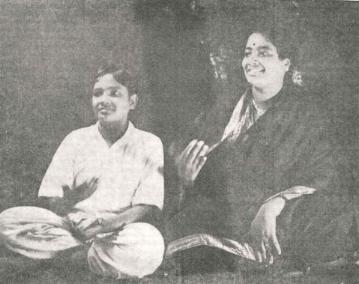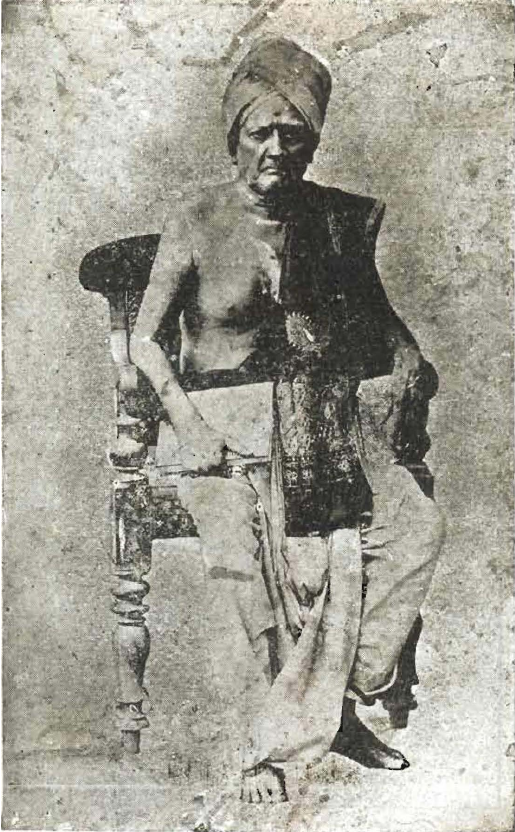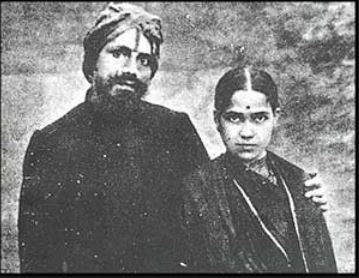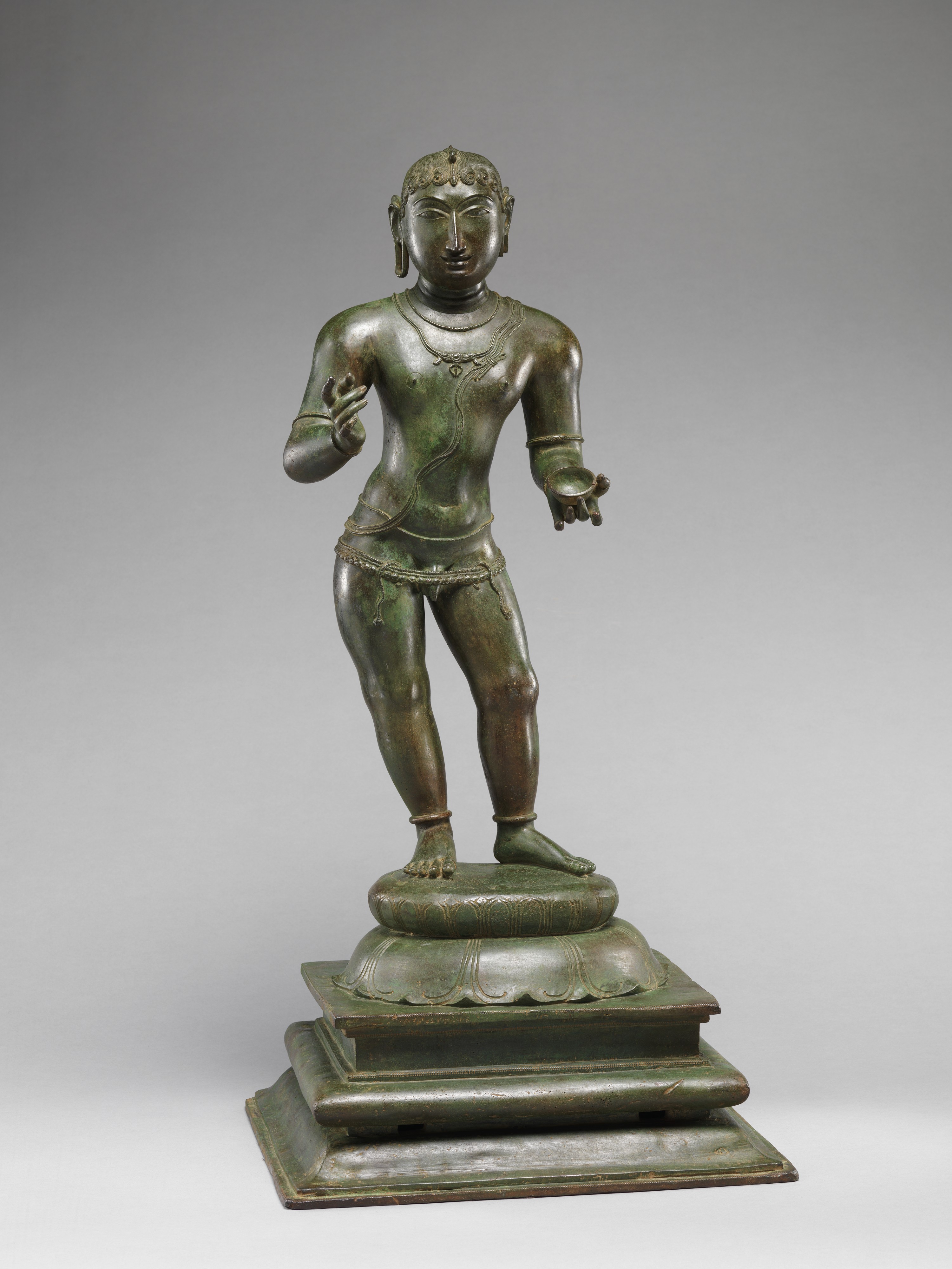|
D. K. Pattammal
Damal Krishnaswamy Pattammal () (19 March 1919 – 16 July 2009), popularly known as D. K. Pattammal or DKP, was an Indian Carnatic musician and a playback singer for film songs in Tamil. Pattammal, along with her contemporaries M. S. Subbulakshmi and M. L. Vasanthakumari, are popularly referred to as the female trinity of Carnatic Music. This trio initiated the entry of women into mainstream Carnatic Music. She has been appreciated all over the world by Carnatic music lovers. Early life and background Pattammal was born in a Brahmin family in Kancheepuram of Tamil Nadu, India. She was named Alamelu, but fondly called "Patta" as a child prodigy. Her father, Damal Krishnaswamy Dikshithar, who was deeply interested in music, inspired her to learn Carnatic music. Her mother, Kanthimathi (Rajammal), although a talented singer herself, was not permitted to sing even for friends or relatives in line with strict orthodox tradition. Despite her orthodox background, Pattammal sang and show ... [...More Info...] [...Related Items...] OR: [Wikipedia] [Google] [Baidu] |
Chennai
Chennai (, ), formerly known as Madras ( the official name until 1996), is the capital city of Tamil Nadu, the southernmost Indian state. The largest city of the state in area and population, Chennai is located on the Coromandel Coast of the Bay of Bengal. According to the 2011 Indian census, Chennai is the sixth-most populous city in the country and forms the fourth-most populous urban agglomeration. The Greater Chennai Corporation is the civic body responsible for the city; it is the oldest city corporation of India, established in 1688—the second oldest in the world after London. The city of Chennai is coterminous with Chennai district, which together with the adjoining suburbs constitutes the Chennai Metropolitan Area, the 36th-largest urban area in the world by population and one of the largest metropolitan economies of India. The traditional and de facto gateway of South India, Chennai is among the most-visited Indian cities by foreign tourists. It was ranked the ... [...More Info...] [...Related Items...] OR: [Wikipedia] [Google] [Baidu] |
Muthuswamy Dikshitar
Muthuswami Dikshitar (Mudduswamy Dikshitar)(, 24 March 1776 – 21 October 1835), mononymously Dikshitar, was a South Indian poet, singer and veena player, and a legendary composer of Indian classical music, who is considered one of the musical trinity of Carnatic music. Muthuswami Dikshitar was born on 24 March 1775 in Tiruvarur near Thanjavur, in what is now the state of Tamil Nadu in India, to a family that is traditionally traced back to Virinichipuram in the northern boundaries of the state. His compositions, of which around 500 are commonly known, are noted for their elaborate and poetic descriptions of Hindu gods and temples and for capturing the essence of the raga forms through the vainika (veena) style that emphasises gamakas. They are typically in a slower speed (chowka kala). He is also known by his signature name of Guruguha which is also his mudra (and can be found in each of his songs). His compositions are widely sung and played in classical concerts of Carnatic mu ... [...More Info...] [...Related Items...] OR: [Wikipedia] [Google] [Baidu] |
Subramania Bharathiyar
C. Subramania Bharathi Birth name: C. Subramaniyan, the person's given name: Subramaniyan, father's given name: Chinnaswami. (C. Subramaniyan by the prevalent patronymic initials as prefix naming system in Tamil Nadu and it is Subramaniyan Chinnaswami by the patronymic suffix naming system.) Bharathi is a conferred title meaning blessed by the goddess of learning. His name became C. Subramania Bharathi and he is also widely known mononymously as Bharathi. (In this article, the subject is referred using his title Bharathi because subject is not known without his title. (Permitted in WP per Wikipedia:Naming conventions (Indic)#Titles and honorifics)) (IPA: ; born C. Subramaniyan 11 December 1882 – 11 September 1921) was a Tamil writer, poet, journalist, Indian independence activist, social reformer and polyglot. He was bestowed the title "Bharathi" for his excellence in poetry. He was a pioneer of modern Tamil poetry and is considered one of the greatest Tamil literary figure ... [...More Info...] [...Related Items...] OR: [Wikipedia] [Google] [Baidu] |
Tevaram
The ''Thevaram'' ( ta, தேவாரம், ), also spelled ''Tevaram'', denotes the first seven volumes of the twelve-volume collection ''Tirumurai'', a Śaiva narrative of epic and puranic heroes, as well as a hagiographic account of early Saiva saints set in devotional poetry. The ''Thevaram'' volumes contain the works of the three most prominent Saiva Tamil poets of the 7th and 8th centuries: Sambandar, Appar, and Sundarar. The three poets were not only involved in portraying their personal devotion to Shiva, but also engaged a community of believers through their songs. Their work is an important source for understanding the Śaiva Bhakti movement in the early medieval South India. In the 10th century, during the reign of Rajaraja I of the Chola dynasty, these poets' hymns were collected and arranged by Nambiyandar Nambi. Starting with the ''Thevaram'' along with the rest of ''Tirumurai'' and ending with the ''Periya Puranam'', Tamil Saivism acquired a canonical set of ... [...More Info...] [...Related Items...] OR: [Wikipedia] [Google] [Baidu] |
Tiruppugazh
Thiruppugal (Tamil: , ', IPA/Tamil: , meaning 'Holy Praise' or 'Divine Glory'), sometimes spelled Thiruppugazh, is a 15th-century anthology of Tamil religious songs dedicated to Lord Murugan, the son of Lord Shiva, written by the poet-saint Arunagirinaadhar (Tamil: , ', ). The anthology is considered one of the central works of medieval Tamil literature, both for its poetical and musical qualities, and for its religious, moral and philosophical content. The work and its contents There are no historical records of the life of Arunagirinaathar, and what we know of the composition of the Thiruppugal is largely derived from oral traditions and legends recorded in commentaries on the work. According to these, Arunagirinathar led a hedonistic life as a young man. His disgust at his own conduct led him to attempt suicide by jumping off the temple tower at Thiruvannamalai. He was saved by Murugan himself. Arunagirinathar was transformed, and began a long pilgrimage, visiting the ... [...More Info...] [...Related Items...] OR: [Wikipedia] [Google] [Baidu] |
Muthuswami Dikshitar
Muthuswami Dikshitar (Mudduswamy Dikshitar)(, 24 March 1776 – 21 October 1835), mononymously Dikshitar, was a South Indian poet, singer and veena player, and a legendary composer of Indian classical music, who is considered one of the musical trinity of Carnatic music. Muthuswami Dikshitar was born on 24 March 1775 in Tiruvarur near Thanjavur, in what is now the state of Tamil Nadu in India, to a family that is traditionally traced back to Virinichipuram in the northern boundaries of the state. His compositions, of which around 500 are commonly known, are noted for their elaborate and poetic descriptions of Hindu gods and temples and for capturing the essence of the raga forms through the vainika (veena) style that emphasises gamakas. They are typically in a slower speed (chowka kala). He is also known by his signature name of Guruguha which is also his mudra (and can be found in each of his songs). His compositions are widely sung and played in classical concerts of Carnatic mu ... [...More Info...] [...Related Items...] OR: [Wikipedia] [Google] [Baidu] |
Madras Music Academy
Madras Music Academy is one of the earliest established music academies in South India. Before the concept of infrastructure was introduced to India in the early 1920s, it was a gathering for elite musicians simply called (and is still more commonly referred to as) Music Academy () It plays an important role in encouraging and promoting primarily the Carnatic Music Indian art form. It played a vital role in the revival of the Indian classical dance form of Bharatnatyam in the 1930s when it faced near extinction due to a negative connotation caused by conservative societal standards. They also run a music school called the Teachers college of Carnatic Music which has many eminent musicians on its faculty. Musicians such as Tiger Varadachariar, Appa Iyer, Valadi Krishnaiyer and Mudicondan Venkatarama Iyer adorned the chair of Principal of the Teacher's College. History In 1927, the Indian National Congress held the All India Music Conference in Madras. At the end of the con ... [...More Info...] [...Related Items...] OR: [Wikipedia] [Google] [Baidu] |
All India Radio
All or ALL may refer to: Language * All, an indefinite pronoun in English * All, one of the English determiners * Allar language (ISO 639-3 code) * Allative case (abbreviated ALL) Music * All (band), an American punk rock band * ''All'' (All album), 1999 * ''All'' (Descendents album) or the title song, 1987 * ''All'' (Horace Silver album) or the title song, 1972 * ''All'' (Yann Tiersen album), 2019 * "All" (song), by Patricia Bredin, representing the UK at Eurovision 1957 * "All (I Ever Want)", a song by Alexander Klaws, 2005 * "All", a song by Collective Soul from ''Hints Allegations and Things Left Unsaid'', 1994 Science and mathematics * ALL (complexity), the class of all decision problems in computability and complexity theory * Acute lymphoblastic leukemia * Anterolateral ligament Sports * American Lacrosse League * Arena Lacrosse League, Canada * Australian Lacrosse League Other uses * All, Missouri, a community in the United States * All, a brand of Sun Prod ... [...More Info...] [...Related Items...] OR: [Wikipedia] [Google] [Baidu] |
Ragam Thanam Pallavi
Ragam Tanam Pallavi (RTP) is a form of singing in Carnatic music which allows the musicians to improvise to a great extent. It is one of the most complete aspects of Indian classical music, demonstrating the entire gamut of talents and the depth of knowledge of the musician. It incorporates ''raga alapana'', ''tanam'', ''niraval'', and '' kalpanaswara''. In more elaborate ragam tanam pallavis, a ''tani avartanam'' Kassebaum (2000), 158 may follow. Ragam "Ragam" in the context of "Ragam Tanam Pallavi" refers to ''raga alapana'' - the first component. In this form of pure melodic improvisation, the musician starts with a refrain to create the mood of raga and lays a foundation for composition to follow. Each ''Ragam tanam pallavi'' has at least one raga associated with it. Tanam ''Tanam'' is one of the most important forms of the improvisation, and is integral to the RTP. It is the second component of this composite form of improvisation. Originally developed for the veena, i ... [...More Info...] [...Related Items...] OR: [Wikipedia] [Google] [Baidu] |
Tyagaraja
Thyagaraja (Telugu: త్యాగరాజ) (4 May 1767 – 6 January 1847), also known as Thyāgayya and in full as Kakarla Thyagabrahmam, was a composer and vocalist of Carnatic music, a form of Indian classical music. Tyagaraja and his contemporaries, Shyama Shastri and Muthuswami Dikshitar, are regarded as the Trinity of Carnatic music. Thyagaraja composed thousands of devotional compositions, most in Telugu and in praise of Lord Rama, many of which remain popular today, the most popular being "Nagumomu". Of special mention are five of his compositions called the ''Pancharatna Kritis'' ( "five gems"), which are often sung in programs in his honour, and ''Utsava Sampradaya Krithis'' ( Festive ritual compositions), which are often sung to accompany temple rituals. Tyagaraja lived through the reigns of four kings of the Maratha dynasty — Tulaja II (1763–1787), Amarasimha (1787–1798), Serfoji II (1798–1832) and Sivaji II (1832–1855), although he served none of ... [...More Info...] [...Related Items...] OR: [Wikipedia] [Google] [Baidu] |
Thyagaraja
Thyagaraja (Telugu: త్యాగరాజ) (4 May 1767 – 6 January 1847), also known as Thyāgayya and in full as Kakarla Thyagabrahmam, was a composer and vocalist of Carnatic music, a form of Indian classical music. Tyagaraja and his contemporaries, Shyama Shastri and Muthuswami Dikshitar, are regarded as the Trinity of Carnatic music. Thyagaraja composed thousands of devotional compositions, most in Telugu and in praise of Lord Rama, many of which remain popular today, the most popular being "Nagumomu". Of special mention are five of his compositions called the ''Pancharatna Kritis'' ( "five gems"), which are often sung in programs in his honour, and ''Utsava Sampradaya Krithis'' ( Festive ritual compositions), which are often sung to accompany temple rituals. Tyagaraja lived through the reigns of four kings of the Maratha dynasty — Tulaja II (1763–1787), Amarasimha (1787–1798), Serfoji II (1798–1832) and Sivaji II (1832–1855), although he served none of ... [...More Info...] [...Related Items...] OR: [Wikipedia] [Google] [Baidu] |





